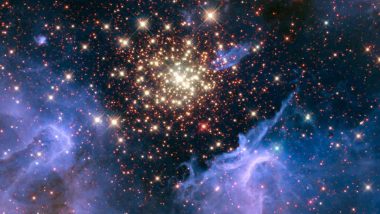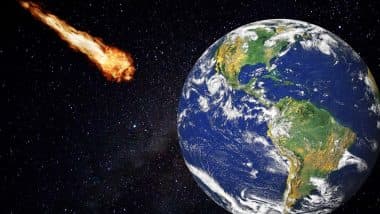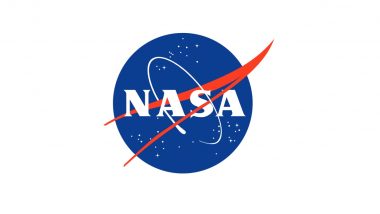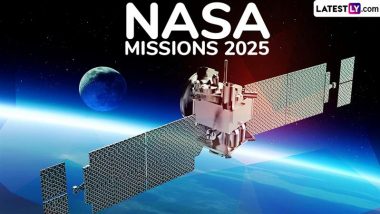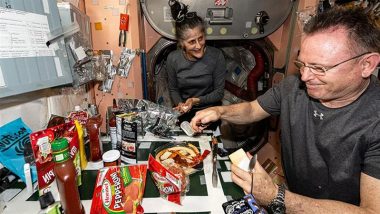National Aeronautics and Space Administration (NASA) has released an image showing stunning 'burst of celestial fireworks'. It's a nebula, located 22,000 light years away in the constellation Carina which contains a central cluster of huge, hot stars, called NGC 3603. The photo shows the cluster surrounded by clouds of interstellar gas and dust, the raw material required for new star formation.
'Like a July 4 fireworks display a young, glittering collection of stars looks like an aerial burst,' NASA wrote. Star clusters like NGC 3603 provide important clues to understanding the origin of massive star formation in the early, distant universe, it says. However, ultraviolet radiation and violent winds have caused an enormous cavity in the gas and dust covering the cluster. In the cluster, most of the stars were born around the same time, however, they differ in size, mass temperature and colour.
Massive clusters are also used to study distant starbursts which occur when galaxies collide resulting in a flurry of star formation. The proximity of NGC 3603 makes it an excellent lab for astronomers to study such distant and momentous events. The course of a star's life is determined by its mass which means a cluster of a particular age will contain stars in various stages of their lives. A detailed analysis of stellar life cycles will reveal more about their age.
NGC 3603 also contains some of the most massive stars known that live fast and die young. They burn through their hydrogen fuel quickly and ultimately ending their lives in supernova explosions. This Hubble Space Telescope image was captured in August 2009 and December 2009 with the Wide Field Camera 3 in both visible and infrared light, which trace the glow of sulfur, hydrogen, and iron, the NASA website said.
(The above story first appeared on LatestLY on Jul 04, 2018 11:48 AM IST. For more news and updates on politics, world, sports, entertainment and lifestyle, log on to our website latestly.com).













 Quickly
Quickly









